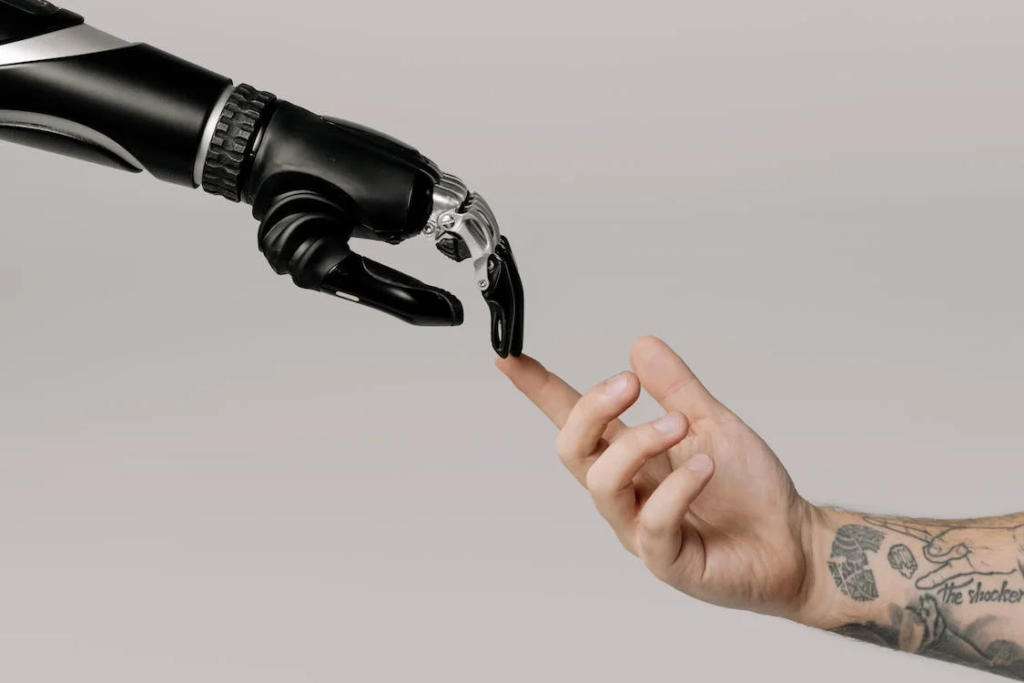Google CEO Sundar Pichai announced a number of new initiatives at the company’s annual Google I/O developer conference on May 10, 2023. One of the most significant announcements was the company’s plans to integrate artificial intelligence (AI) into its services.
Pichai said that AI is “the most important technology of our time” and that it has the potential to “make our lives better in so many ways.” He outlined a numerous ways that Google is planning to use AI to improve its products and services, including:
- Making search more personalized and relevant: Google is using AI to better understand users’ search queries and to provide more relevant results. For example, the company is using AI to develop new features that will allow users to search for images, videos, and products with natural language queries.
- Improving the accuracy of Google Translate: Google is using AI to improve the accuracy of its translation service. The company is also using AI to develop new features that will allow users to translate text in real time.
- Making Google Maps more helpful: Google is using AI to improve the accuracy of Google Maps. The company is also using AI to develop new features that will allow users to get more information about their surroundings, such as the best places to eat or the most popular tourist attractions.
- Making Google Photos more creative: Google is using AI to make Google Photos more creative. The company is developing new features that will allow users to create collages, animations, and movies from their photos.
- Making Google Assistant more helpful: Google is using AI to make Google Assistant more helpful. The company is developing new features that will allow users to control their devices with their voice, get information about the world around them, and even make phone calls.
Pichai also announced a number of other initiatives, including the launch of a new AI research center in Paris and the creation of a new AI ethics advisory council. He said that Google is committed to using AI responsibly and that it is working to ensure that AI is used for good.
Google’s plans to integrate AI into its services are ambitious, but they have the potential to revolutionize the way we interact with technology. By using AI to make its products and services more personalized, relevant, and helpful, Google is poised to become even more essential to our lives.
How AI is already being used in Google products and services
Google is already using AI in a number of its products and services. For example, the company’s search engine uses AI to personalize results for each user, and its translation service uses AI to provide accurate translations in real time. Google is also using AI to improve the accuracy of its maps, make its photos more creative, and make its assistant more helpful.
How AI will be used in Google products and services in the future
Google plans to use AI to make its products and services even more personalized, relevant, and helpful. For example, the company is working on a new feature that will allow users to search for images, videos, and products with natural language queries. Google is also working on improving the accuracy of its translation service, making its maps more helpful, and making its photos more creative.
The potential benefits of using AI in Google products and services
The potential benefits of using AI in Google products and services are numerous. For example, AI can be used to make search results more personalized, improve the accuracy of translation services, and make maps more helpful. AI can also be used to make photos more creative and make Google Assistant more helpful.
The potential risks of using AI in Google products and services
There are also some potential risks associated with using AI in Google products and services. For example, AI could be used to create deepfakes or to track users’ online activity. Google is committed to using AI responsibly, and the company has a number of policies in place to protect users’ privacy and security.
Google has announced plans to integrate artificial intelligence (AI) into its search engine and other

products. While many people are excited about the potential benefits of AI, some website publishers are concerned that the changes will reduce traffic to their sites.
Overall, the impact of AI on website publishers is still uncertain. However, it is clear that AI has the potential to significantly change the way that people find and consume information online. Website publishers will need to adapt to these changes in order to remain successful.
Here are some of the things that website publishers can do to adapt to the changes brought about by AI:
- Create high-quality content: This is the most important thing that website publishers can do to ensure that their sites remain visible in search results. AI is still under development, and it is not yet able to identify high-quality content as reliably as a human can.
- Focus on user engagement: AI is also able to track user engagement with websites. Websites that are able to keep users engaged for longer periods of time are more likely to rank higher in search results.
- Use social media: Social media is a powerful tool for driving traffic to websites. Website publishers should make sure that they are active on social media and that they are sharing their content on a regular basis.
- Experiment with different marketing strategies: There is no one-size-fits-all approach to marketing in the age of AI. Website publishers should experiment with different marketing strategies to see what works best for their websites.
Google’s plans to integrate AI into its services are ambitious, but there’s little doubt AI will revolutionize the way we interact with technology.










